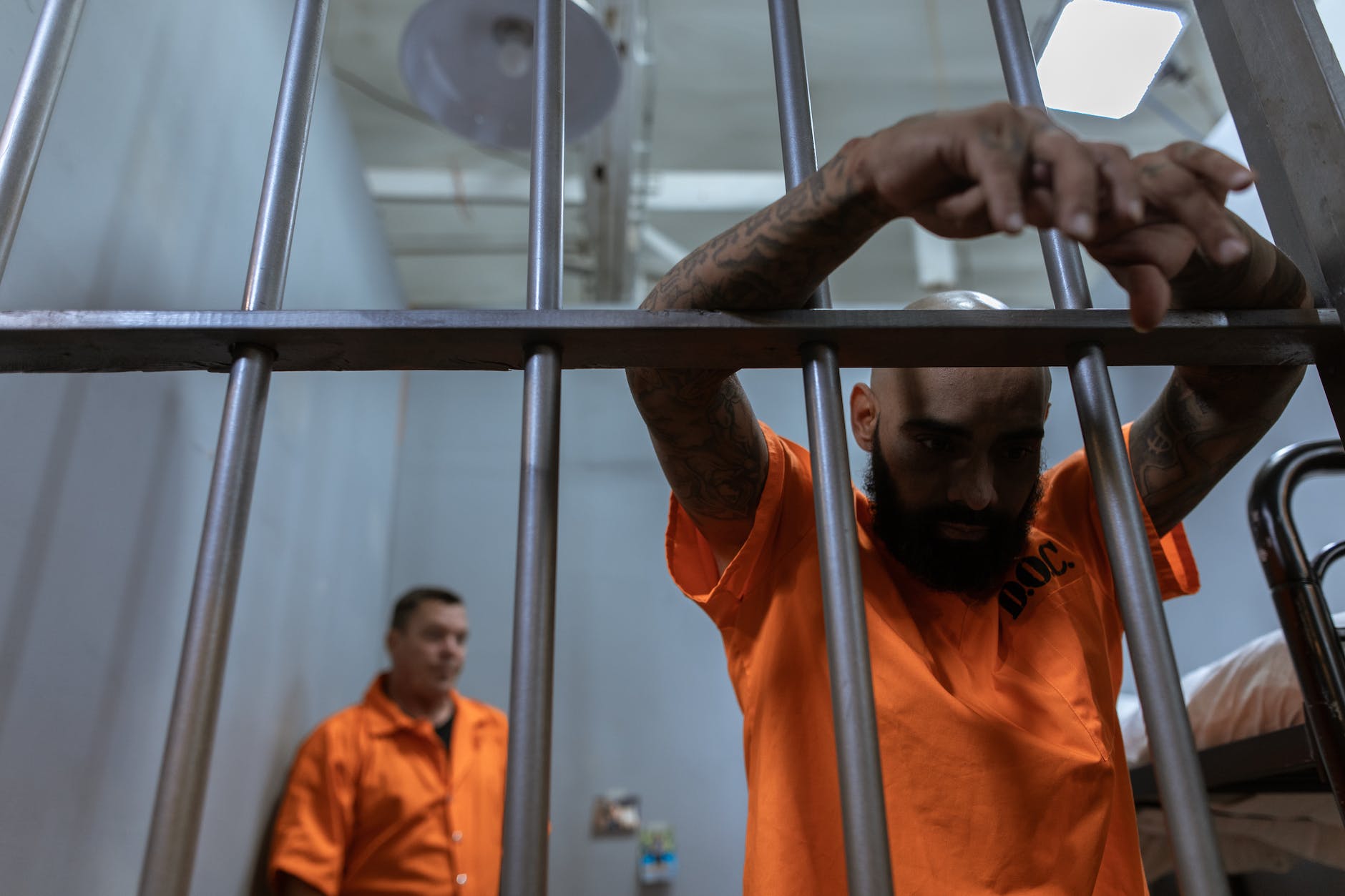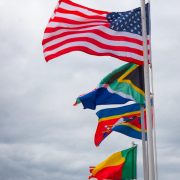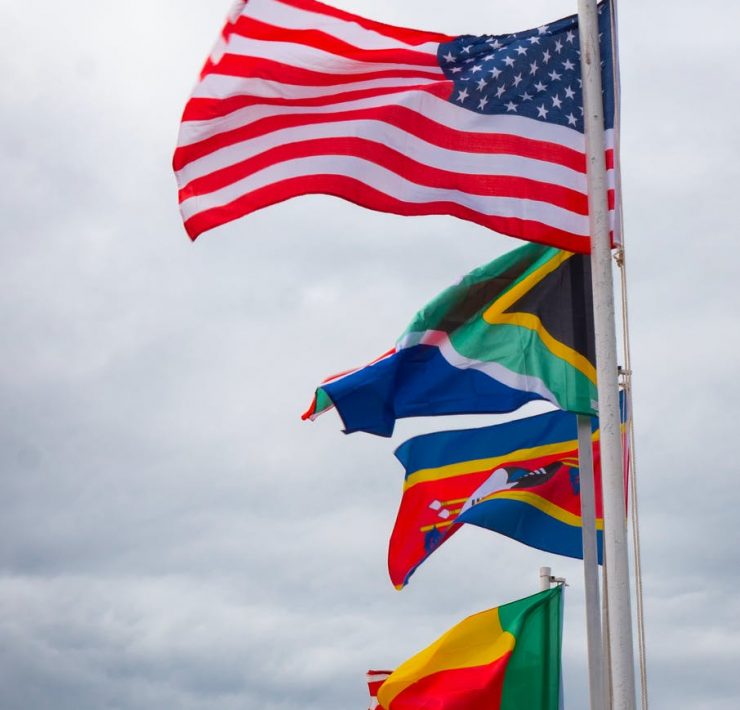Free but in Chains

Abel Merawi is from Addis Ababa. He is an English…
Part I: Bondage of Worldview
“Man is born free, but he is everywhere in chains.” These were the words of Rousseau in his classical work of 1762, ‘The Social Contract’. This famous idea still echoes in the twenty-first century. Surely, most of the world is now free from the tyranny of traditional societal order; free from empires and dictators. But the fetters that held our ancestors were not removed; they were rather merely replaced with contemporary shackles. Ironically, even this famous idea of Rousseau’s contained its own chains when viewed from the contemporary world of feminism. But to save the worth of the idea, we can alter the wording and say: human beings are born free, but they are everywhere in chains. Now that we’ve got that out of the way, let us observe how the contemporary individual is restrained from fully realizing their freedom.

The manifestations of chains are multivalent, appearing as social, ideological, economic and/or personal forms of bondage. Among the many, political chains are dominant. Political chains stand as a barrier to our personal freedom when we let them become the dominant feature of our lives. It is common to hear Americans saying, ‘I’m a democrat’ or ‘I’m a conservative.’ In Ethiopia too, we hear people voicing their unshakable support for this or that political party. After physical or intellectual debates with opposition party supporters, they cease to question any action of their party and pledge their allegiance. Then they become trapped by their own choice. Now they have to make their lives a reflection of their party identity. For instance, they stop helping the needy since their political identity is opposed to the welfare system. Little by little, the individual abandons freedom and ends up chained in a political prison.
The case of the party leader is not much different from the party member. As Nietzsche claims, the party member becomes a slave to the party by losing one’s individual identity. This has been the unfortunate fate of many revolutionary and freedom fighters. The hero or the defender of justice loses the goal along the long journey and ends up being consumed in the party. The organization we call a political party, eventually gains a life of its own. Its founders and members become its slaves. In an attempt to defend this imaginary organization – intersubjective reality – great individuals lose their freedom together with the values that represent freedom.
Closely linked to political chains, we find ideological chains that threaten individuality and freedom. These ideological shackles are mental constructs and can only be removed by the person who chose them. Let us take a look at liberal democracies and communism as prime examples and see how they starve the individual of freedom. A sophisticated and learned person might say, “I am a liberal democrat and live by the libertarian ideologies that guarantee personal freedom.” With these words, the magical spell is cast. Libertarianism envelops every decision they make. Perhaps, this ‘liberal democrat’ is a mother of a spoiled child. But correcting the child’s behavior is not expected of a libertarian, thus, the mother respects the freedom of her innocent child, who nonetheless seeks guidance. This liberal woman may work for a manipulative capitalist for minimum wage. She experiences the brunt of the free market in the rising cost of living. But trapped in liberal ideology, she fails to see the injustice of a system that keeps her shackled in poverty. Forgetting how she is a cog in a greed-driven system, she believes things would get better if she works hard. In simple terms, she views the world only from the singular lens of libertarianism and ends up mistaking the illusion of individuality for freedom.
Now, let us turn to the adherent and blind believer of traditional communism. Such a person may claim, “I am a true communist and believe in the perfect world depicted in the communist ideology.” This statement creates mental bondage in a person. The world will no longer represent options, which is the foundation of freedom. This ‘communist’ may be a man who values pleasure more than work. In his mind, life means ‘sameness’ as he seeks a dry world where everyone lives and thinks in the same way. Accordingly, every rich person appears to him as a criminal who exploited the people. The industrious and the creative are like ‘sacrificial animals’ that should support the rest of society. The famous words of communism, “from each according to his ability, to each according to this need,” melt his heart. When his overworked parents tell him to look for a job, he argues that the wealth of the world is enough to feed the world if only the government takes the money from the ‘haves’ and gives it to the ‘have-nots’. Such a person has abandoned freedom that entails responsibility.
In the case of both the liberal democrat and the communist, their ideological chains have snatched away their own freedom. They chose to be singular and in doing so they viewed the world as singular. As indicated above, freedom exists when there are choices. If we think the world is comprehensible from a single vantage point, we are taking away abandoning freedom and individuality. Just to be clear, ‘individuality’ should not be confused with ‘individualism’. As Dr. Cornel West expressed eloquently, individuality is an expression of personal values and freedom while properly functioning in a society. Individualism, on the other hand, is just another institutionalized term that requires a person to follow specific principles, which make freedom predefined. Coming back to the essence, freedom requires choices and a broad array of perspectives.
Be it in the political or ideological, individual freedom is lost when a person falls into the bondage of a singular worldview. Personally, I think one can be liberal politically and, at the same time, become a social democrat economically. Numerous are the wars fueled by political and ideological differences. Due to this, millions have died and undergone unimaginable suffering for centuries across the world. As Jean-Jacques Rousseau claims, human beings are born free. We are born free from political and ideological identity. Yet, we are everywhere in chains because our freedom is shallowly defined. We are in chains, but we can remove them if we choose to, despite the consequences. The power of such institutions is overwhelming and seems impossible to overcome. But we should not lose heart, for we can at least change ourselves by viewing the world from a boarder perspective. We can light up a candle in these dark times of political and ideological extremism by candidly interacting with fellow human beings.
Read Part II – Social Bondage Here
What's Your Reaction?
Abel Merawi is from Addis Ababa. He is an English literature teacher, freelance writer/reporter for Ezega.com and an Amharic-English translator and editor. He also writes for www.msingiafrikamagazine.com. You can reach him via: abelmerawi4@gmail.com













